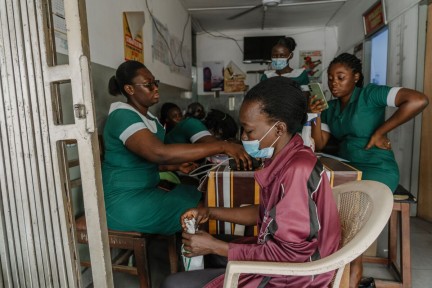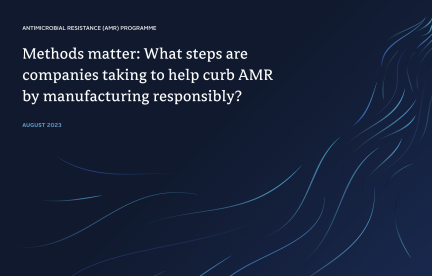Active manufacturing responsibility and the other AMR
Antibiotics are a cornerstone of modern medicine, but the rampant rise of drug resistance is threatening their effectiveness – costing lives and endangering millions more.
When the Access to Medicine Foundation first started working on antimicrobial resistance (AMR) in 2016, it was estimated 10 million people would succumb to drug-resistant infections each year by 2050. Alarmingly, we are now seeing that lives lost due to AMR may surpass this sooner than we thought. In 2019 alone, 1.27 million people died of drug-resistant infections, disproportionately affecting people living in low- and middle-income countries.(1)
To minimize the spread of AMR, and to save lives, the development of effective new antibiotics is urgently needed, as is wider access to the full range of antibiotics. This is especially critical in LMICs, where antibiotic access issues are most chronic, and AMR is already hitting hard. But there is another consideration that cannot be ignored; when these lifesaving medicines are produced, antibiotic waste is typically released into rivers and waterways used for drinking water or agriculture. If this waste contains high levels of APIs, it poses a huge risk to the emergence and spread of drug-resistant bacteria, not to mention the harmful impact on the natural environment.
So, what can companies do in the face of needing to expand access to antibiotics, while ensuring their very production doesn’t cause unintended harm? The answer is that, ultimately, by managing antibiotic manufacturing waste responsibly, pharmaceutical companies and their suppliers – in India, China and elsewhere – can proactively cancel out unnecessary, preventable AMR risk.
Read the full op-ed on the Medicine Maker website.

Marijn Verhoef
Director of Private Sector Engagement
mverhoef@accesstomedicinefoundation.org
Get in touch
